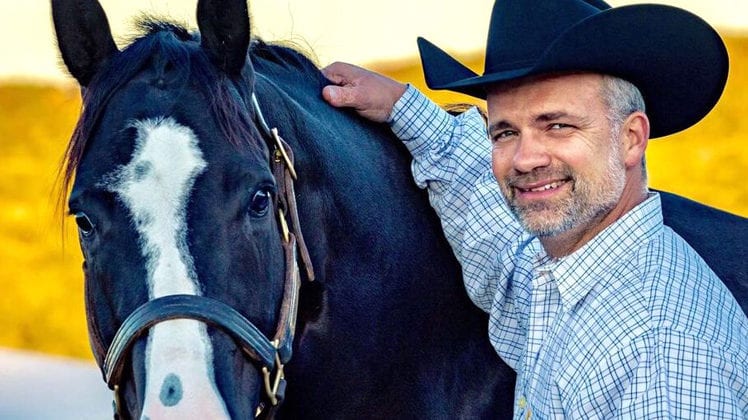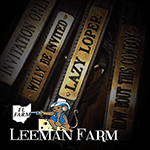Legendary National Champion basketball coach Bobby Knight once said, “Most people have the will to win, but few have the will to prepare to win.”
Preparation is the key to success, especially in the show pen. Unfortunately, the Coronavirus has sidelined many exhibitors recently because of show cancellations or quarantine. As a result, exhibitors may feel unprepared to attend big circuits as shows start back up because of their inability to have practiced inside the show pen.
How should exhibitors stay prepared mentally and physically to step into the saddle at some of the biggest shows around the nation soon when they are unable to have the same number of shows under their belt compared to previous years?
To answer this question, we asked AQHA Professional Horseman and Judge Brad Jewett for his opinion.
Jewett has been training horses for 25 years with extensive experience in horsemanship, showmanship, trail, western pleasure, western riding, hunt seat equitation, reining and ranch riding. Brad has trained and coached numerous exhibitors and their horses to World and Reserve World Championships, as well as multiple All-American Quarter Horse Congress Champions.
In addition to his accolades as a trainer and coach, Brad is also a renowned clinician with his virtual teaching platform Jewett Equine TV. Most recently, Brad began a Facebook TV series called Keeping It Real with his co-host Tim Kimura. The two discuss equine-related topics with guest stars from across the industry and answer viewers’ questions.
Jewett says, “I’ve been a big proponent on my talk-show for loving this time we have had off from constant shows. It’s allowed me to help teach my students, my clients, and my program more of the ins and outs of preparing their horses. There is a lot that goes into making a World Champion, and this time off has allowed me to teach my students on a deeper level.”
To help exhibitors cope with the challenges of not having multiple shows under their belt before heading to big competitions this summer, Brad gave GoHorseShow five tips exhibitors can use to prepare for shows.
Take the time to learn
“Learning the details of how to keep the horse’s body in frame and soft instead of just picking up and forcing the horse’s head to go down will help exhibitors in the long run.”
Brad says it is vital to use this time wisely. Exhibitors should further their knowledge and understanding of the little elements that make their horses perform inside the show pen. “I have a 13 and under learning how to teach her horse how to change leads that has never done it before. It’s a great time to learn,” says Brad.
Test your training
“Now, it is time to put your hand down and see what the training has done. It is time to start actually practicing. Work on those transitions. Get that horse spinning properly. Make sure the horse is guiding the way it will have to inside the show pen. It may not be pretty immediately because the horses will be used to the rider helping them along the way, but it will get there. Being able to separate your training from your practicing is key to seeing progress in your preparation during this time,” says Jewett.
“One of the tools I use to test my riders is The Virtual Horse Show. I give my riders three chances to be videoed,” Brad shares. “If they do not get the pattern they want to submit in three chances, then we choose the best one of the three, and they place how the judges see fit. The Virtual Horse Show has been a great benefit to us during this time because it shows my clients where they can improve, along with providing feedback from judges. Limiting the number of times I allow them to do the patterns for submission helps The Virtual Horse Show feel more like a real show because you only get one shot at a show to do your best. It puts them in the best position to succeed. Using this platform has allowed them to focus their mental and physical preparation in a strange time.”
Know your perspective
“Understand that maybe you are not ready to go win the first time out after this time off. Keep your perspective focused on being the best rider and team you can be,” says Brad. “For me, keeping one mentally tough means keeping perspective. If you can walk in the show pen and walk out the same as you walked in, then we know next time we can put the hammer down in the practice pen, and it will stick for the show.”
Physical fitness is essential
Brad says physical fitness is key to helping your overall performance during this time. “Focusing on your core strength and leg strength can greatly help you as a rider. When your core, glutes and legs are strong, it helps support your position on your horse. Extreme workouts are not that important to helping your riding skills, but when you do basic bodyweight strengthening exercises, it helps you to stay in sync with your horse and the correct position in the saddle. Having control over your body movements will drastically help you overall.”
Never settle
“I have always been one that has allowed my clients to learn and make mistakes. I tell them never to expect instant gratification but to trust their training and trust that they are going to get better. It’s a process. Everything with horses is a learning experience. There is always more to learn. There will always be another mountain to climb with a valley you have to push through before you find that next hurdle to jump. If you think you have arrived, it is only a matter of time before someone passes you. Never rest on your laurels,” says Brad.
***
As you head out in the coming weeks to attend some of the biggest shows in the nation, remember to keep Brad’s tips in mind to give you and your horse the best opportunity to chase your dreams and succeed.








